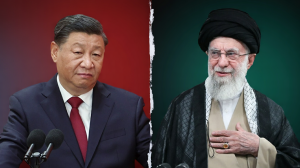Trump says Israel-Iran ceasefire is in effect after deal initially faltered

U.S. President Trump Announces Ceasefire Between Iran and Israel
On Tuesday, U.S. President Donald Trump declared that a ceasefire was effectively in place between Iran and Israel following initial difficulties. Prior to this announcement, Iran was accused by Israel of violating the truce by launching missiles into Israeli territory, escalating tensions further. As a response, Israel targeted an Iranian radar system, however, held back from more significant strikes, a restraint guided by discussions with President Trump.
Iran and Israel’s Mutual Accusations Amid Truce
The ceasefire began shakily with reports of explosions in northern Israel due to intercepted Iranian missiles. Despite Iran’s denial of these missile attacks via state media, the reality on the ground spoke differently, marked by renewed fears and disruptions in Israel. Trump, expressing his discontent, noted breaches by both nations immediately after the ceasefire commenced, highlighting a particularly critical stance towards Israel despite its status as a close ally.
Trump’s Direct Involvement in Negotiation
Prior to leaving for a NATO summit, Trump used his platform on Truth Social to ensure both nations that aggressive actions must cease, emphasizing peace and safety by stating, “ISRAEL is not going to attack Iran. All planes will turn around and head home, while doing a friendly Plane Wave to Iran. Nobody will be hurt, the Ceasefire is in effect!” This strong directive aligned with his later statements regarding non-support for regime change in Iran, contradicting his earlier more provocative suggestions on social media.
Broader Regional Impact of the Conflict
The precariousness of the ceasefire was underscored by earlier actions where Iran launched missiles targeting not only Israel but also a U.S. military base in Qatar, fortunately without casualties due to prior warning. Concurrently, drone attacks were reported on military bases in Iraq housing U.S. troops, with those attacks being neutralized effectively by U.S. forces.
Humanitarian and U.S. Citizens Concerns
|
The conflict, which escalated prior to the ceasefire, has had severe humanitarian impacts. Strikes between the two nations have resulted in significant casualties and injuries, with Human Rights Activists providing grim figures of those affected. Amid these tensions, the U.S. has also undertaken evacuation of American citizens from Israel, indicating the severity of the risk posed by continued hostilities.
Conclusion of Immediate Hostilities
Facing international pressure and the urgings of President Trump, both Iran and Israel initially observed a delicate ceasefire. Following setbacks with accusations of ceasefire violations by both parties, Trump’s stern intervention encouraged a temporary halt in direct conflicts. Netanyahu’s office has confirmed adherence to the ceasefire in the aftermath of discussions with President Trump, illustrating the critical role of U.S. intervention in de-escalating regional tensions.
Despite the cessation of immediate strikes, the long-standing animosities and the potential for further misunderstandings highlight the fragile nature of peace in the region. The international community, spearheaded by Trump’s efforts, continues to watch closely, hoping for a durable peace settlement.








No Comments